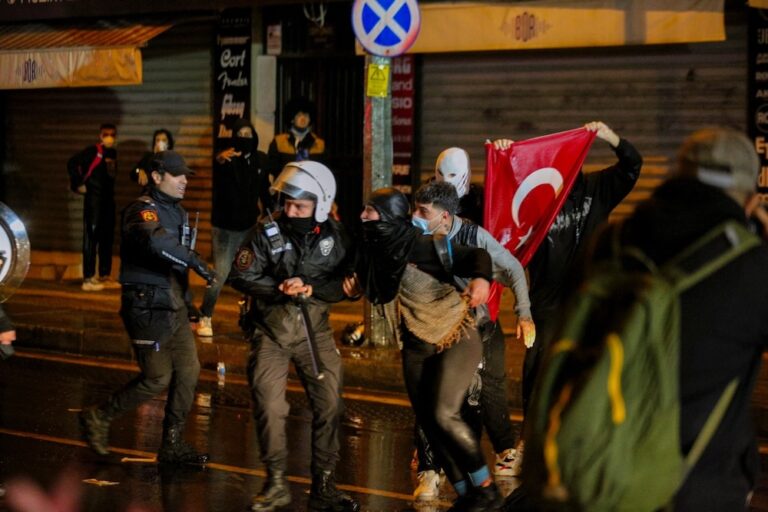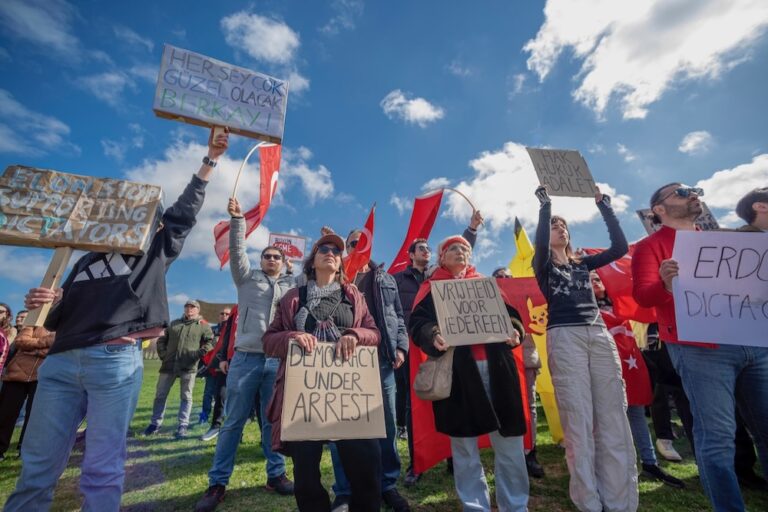(BIANET/IFEX) – Charges against the late editor-in-chief of “Agos” newspaper, Hrant Dink, of “degrading Turkishness” and “attempting to influence the judiciary” were dropped after he was murdered on 19 January 2007. However, on 14 June, prosecutor Mücahit Ercan demanded that Serkis Seropyan, the owner of “Agos”, and the managing editor Arat Dink (Dink’s son) be […]
(BIANET/IFEX) – Charges against the late editor-in-chief of “Agos” newspaper, Hrant Dink, of “degrading Turkishness” and “attempting to influence the judiciary” were dropped after he was murdered on 19 January 2007. However, on 14 June, prosecutor Mücahit Ercan demanded that Serkis Seropyan, the owner of “Agos”, and the managing editor Arat Dink (Dink’s son) be punished in the same case.
Ercan said, “We believe that the accused are degrading Turkishness by suggesting, contrary to historical truth and without proof, that a people were destroyed by Turks.” He called for their punishment under articles 301 and 53.
The hearing, which took place in a penal court in Sisli, Istanbul, was observed by Halil Ibrahim Özcan, the Turkish PEN Imprisoned Writers’ Committee president; Zeynep Taskin, a representative of the Heinrich Böll Foundation; and human rights activist Füsun Celiköz. The judge, Metin Aydin, closed the hearing to the public and the media.
In an interview with Reuters News Agency published on 21 July 2006, entitled “One Signature against 301”, Hrant Dink had said that he believed that an “Armenian genocide” had happened. He said: “Of course I say that there was a genocide because the result speaks for itself. You can see that a people who lived on this soil for 4,000 years disappeared after those events.”
Regarding his father’s comments, Arat Dink stated that “I cannot deny myself, my history and my identity. These comments of mine have also made the front pages of Turkish newspapers before, but there was never a trial. That is because at the time there was no operation to ‘show me my place'”. Seropyan said, “If it were necessary to collect signatures against article 301 again, I would do it”.
The defendants’ lawyer, Fethiye Cetin, claimed that the trial was only continuing because her clients were newsworthy. She pleaded for their acquittal, citing the dismissal of historian Taner Akcam’s case as a precedent.
Lawyer Erdal Dogan stated that the cases against the “Agos” representatives were indefensible in the light of the case law of the European Court of Human Rights.
In a separate case, Karin Karakasli, an “Agos” editor who received a suspended sentence of six months imprisonment for publishing a series of articles on “Armenian identity”, was acquitted after the Supreme Court of Appeals ordered a retrial.
In yet another case, against “Agos” journalist Aydın Engin, as well as Seropyan and Arat Dink, concerning an article by Engin entitled “The judiciary needs to be disturbed”, Dink and Seropyan were acquitted, but Engin still faces one charge of “insulting the panel of judges”. On request of the defence, which had not taken part in the deliberations, the case was slated to continue on 18 July.


